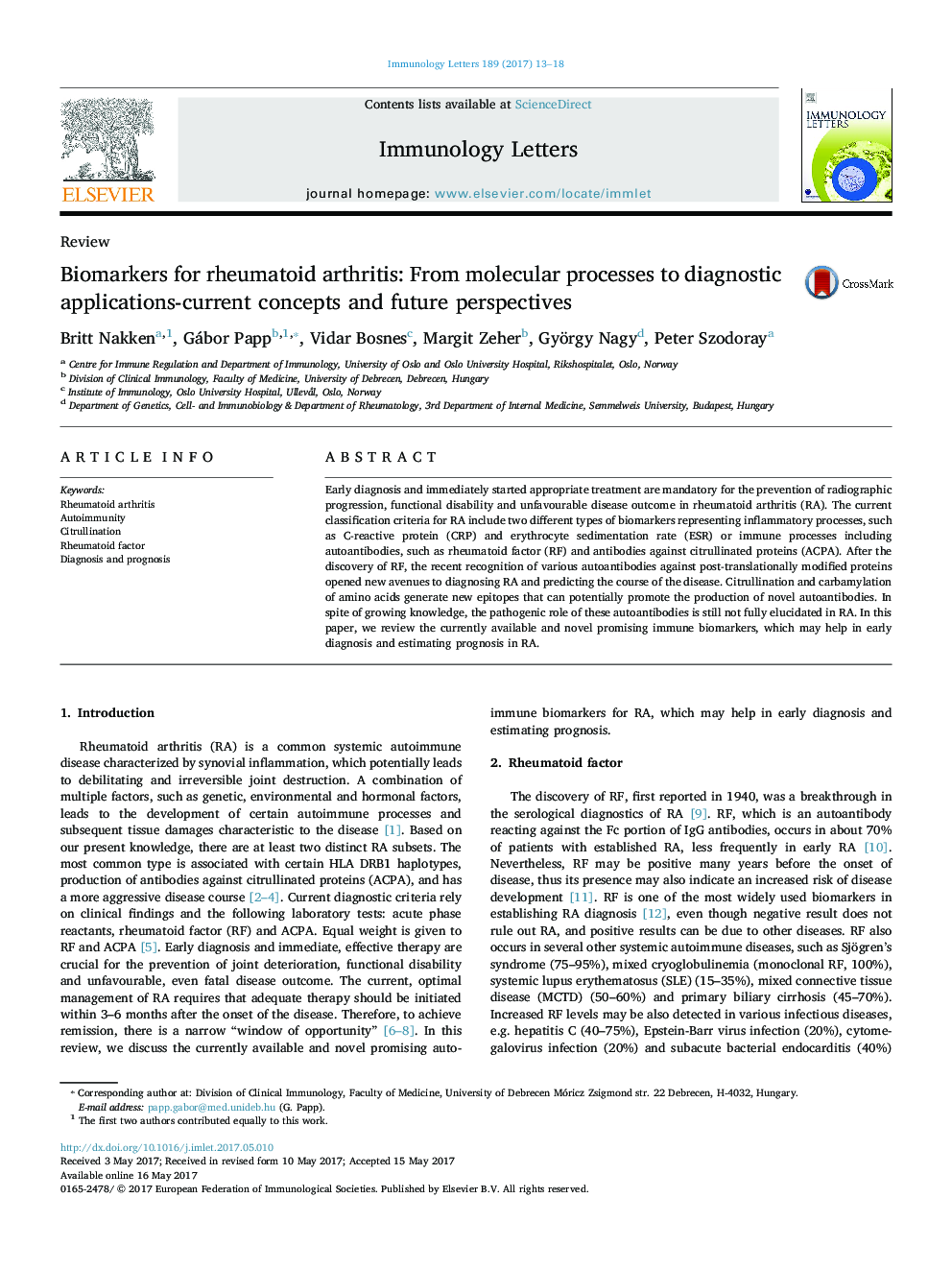| Article ID | Journal | Published Year | Pages | File Type |
|---|---|---|---|---|
| 5666662 | Immunology Letters | 2017 | 6 Pages |
â¢Simultaneous assessment of RF and ACPAs leads to early and efficient RA diagnosis.â¢Novel autoantibodies against post-translationally modified proteins are suitable biomarkers.â¢The pathogenetic role of autoantibodies is still not fully elucidated in RA.
Early diagnosis and immediately started appropriate treatment are mandatory for the prevention of radiographic progression, functional disability and unfavourable disease outcome in rheumatoid arthritis (RA). The current classification criteria for RA include two different types of biomarkers representing inflammatory processes, such as C-reactive protein (CRP) and erythrocyte sedimentation rate (ESR) or immune processes including autoantibodies, such as rheumatoid factor (RF) and antibodies against citrullinated proteins (ACPA). After the discovery of RF, the recent recognition of various autoantibodies against post-translationally modified proteins opened new avenues to diagnosing RA and predicting the course of the disease. Citrullination and carbamylation of amino acids generate new epitopes that can potentially promote the production of novel autoantibodies. In spite of growing knowledge, the pathogenic role of these autoantibodies is still not fully elucidated in RA. In this paper, we review the currently available and novel promising immune biomarkers, which may help in early diagnosis and estimating prognosis in RA.
